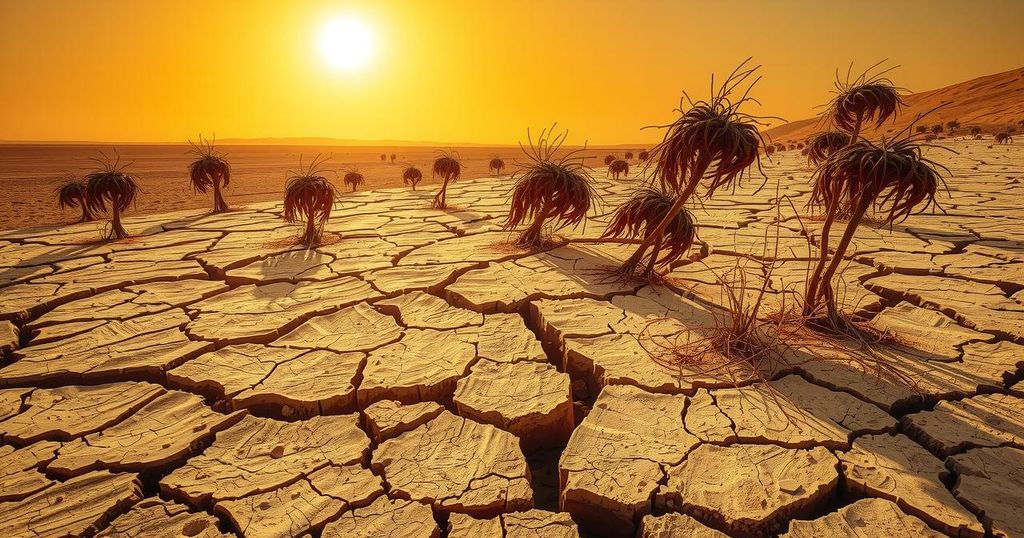Women and girls in South Sudan face heightened risks due to climate change-induced heatwaves, as revealed by a WWA study. The research indicates significant health implications, including increased dangers during pregnancy and education interruptions. Solutions such as improving school infrastructure and reducing fossil fuel emissions are critical for alleviating the adverse effects of climate change on these vulnerable groups.
Women and girls in South Sudan are facing increased health risks and worsened inequality as climate change exacerbates the country’s record-breaking heat. A study by the World Weather Attribution (WWA) group indicates that February’s heatwave was significantly intensified by climate change, being approximately ten times more likely and 2 degrees Celsius hotter due to human activity. This highlights the severe implications of climate change on vulnerable populations in conflict-affected regions.
In February, extreme heat led to numerous students collapsing from heat strokes in Juba, resulting in widespread school closures that disrupted education. Such events have become more common, as schools, primarily equipped with iron roofs and lacking air conditioning, create unbearable conditions for students during heatwaves.
The impact of school closures is particularly detrimental for girls, as it disrupts their education and makes it harder for them to return to school. Furthermore, women’s traditional roles expose them to higher risks of heat-related illnesses while engaging in household chores and work. The study calls for improvements in school infrastructure to reduce heat and suggest modifying class schedules to minimize educational disruption.
Societal norms in South Sudan contribute to women’s vulnerabilities, as traditional gender roles necessitate greater care responsibilities in the face of frequent extreme weather. The ongoing burning of fossil fuels worsens climate conditions, suggesting a need for a shift towards more sustainable practices to alleviate these inequalities.
In summary, climate change is intensifying the impact of heatwaves in South Sudan, disproportionately affecting women and girls. The findings underscore the urgent need to address gender inequalities and implement sustainable practices that protect vulnerable populations from the debilitating effects of extreme heat. As climate events become more frequent, it is essential for policymakers to adapt strategies that mitigate these risks, especially for those already facing social and economic challenges.
Original Source: www.climatechangenews.com






